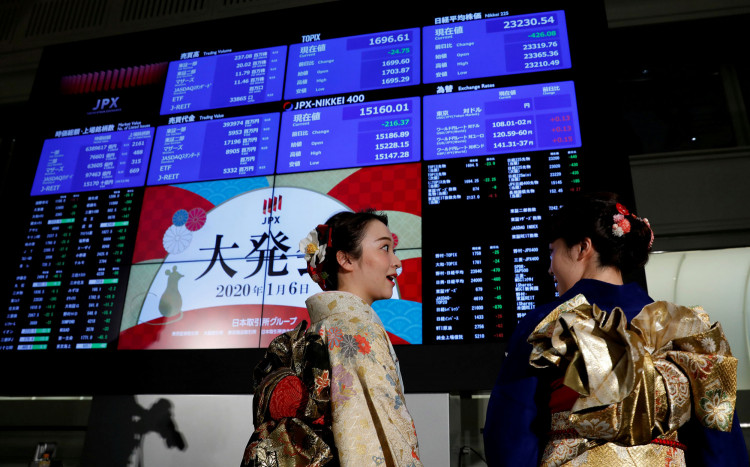The latest figures of the global stock market showed that Asian shares remained steady after US President Donald Trump announced that phase one of the China-US trade deal would benefit farmers. This Tuesday, the stock market opened with decreasing value on shares of Asian stocks due to investor reluctance over the International Monetary Fund (IMF) announcement easing its outlook on global economic growth for 2020.
After India showed a sharp slowdown of its economy, the IMF trimmed down its global forecasts. The said forecast affected other emerging markets even after the completion of phase one of the China-US trade deal.
The analysts claimed that although the trade deal would result in favorable results to some industries, investor reluctance was still prevailing. The presumption was manifested from the opening values of Asian markets this Tuesday.
The results showed that MSCI had the broadest index of Asian-Pacific shares apart from Japan. It was down by 0.04 percent, Japan's Nikkei also dropped by 0.1 percent, South Korea's declined by 0.04 percent, while E-mini futures for the S&P 500 also reduced by 0.05 percent, reported Financial Post.
According to Bloomberg, apart from stocks, US futures also dropped in Asian trading. Hong Kong equities were said to be down by two percent as well.
According to the IMF, the global economic growth rate would be at 3.3 percent this year, which is 0.1 percent down from initial forecasts. It was also revealed that the IMF's 2021 forecast would instead be at a 3.4 percent growth rate, lower than the initial 3.6 percent estimate. For China, on the other hand, the IMF showed a promising growth rate of six percent.
The higher forecast was reportedly due to the easement that US President Donald Trump and French President Emmanuel Macron gave investors when they arrived at a truce over an offered digital tax on goods. Both presidents announced that they would postpone the potential tariffs war up until the end of 2020.
It was also hinted a report that Trump would give a speech at the World Economic Forum to be held in Davos this coming January 21, 2020. The speech allegedly would encompass matters regarding the tariff wars and the trade easements caused by trade deals.
The head of International Economics at Commonwealth Bank of Australia Richard Grace claimed that there would be no further easements in policies because the government already established a new fiscal package worth 1 percent of the country's GDP.
He also added that Japan's 10-year government bond yield has been consistently receding to -39bp last year and remained unchanged for a twelve-month high. Thus, he suggested that the outlook on Japan's economy was reasonable.





